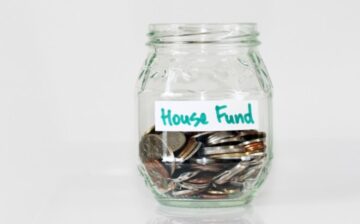
A commercial loan is an arrangement between a financial institution and a business. In most cases, the issuing entity is a bank. The goal of real estate commercial loans is to fund major capital expenses or to cover operational costs which the business may otherwise not be able to afford.
Because of regulatory challenges and high upfront costs, most small businesses don’t have direct access to equity markets and bonds for financing purposes.
Because of this, small businesses often have to rely on other means like short-term loans, line of credit, and lending products. In this post by Cash for Home Arizona, we look at how commercial real estate loans work and what are the different types of it.
How Do Commercial Loans Work?
Banks approve commercial loans to all kinds of business entities. The idea is to help them with the supply of short-term funding which is often needed to cover operational costs. In some cases, commercial loans aid the purchase of equipment to help with operational processes.
Commercial real estate loans may also be needed to cover costs of basic operations such as to purchase manufacturing and production supplies or to fund the payroll of employees.
Real estate loans often demand that a business offer collateral, mostly in the form of equipment, plant, or property which the bank can confiscate in the event of bankruptcy or default. At times, a business may even offer up the profit from future accounts receivables as collateral.
Types of Commercial Loans
Commercial Real Estate Mortgage Loan
The same way you take out a mortgage loan when buying a house, you can also take out a mortgage when buying commercial property. The purpose of commercial real estate mortgage loans is to help businesses finance acquisition or renovation of real estate properties. These loans require that the property be majority owner-occupied. In other words, at least 51% of the estate should be running the actual business. If that’s not possible, the borrowers can explore the option of an investment property loan.
Depending on the type of property, the rates and terms of the loan can vary. For example, the down payment can be 10-50% or more. The terms of repayment can be anywhere between 5-25 years.
SBA Loans
Loans sanctioned by the SBA, short for Small Business Administration, come with a partial guarantee. The SBA does not extend loans itself, but rather works with financial institutions to help small business owners. The guarantee states that the lender will get the money back in case of default.
SBA incentivizes lenders who lend loans to small businesses even if they are unable to meet all the requirements of a real estate loan.
An SBA loan is similar to a traditional loan, but the interest rate is lower and the terms are usually longer. It can take a while for SBA loans to be approved, so you may have to wait a while.
Equipment Loans
An equipment loan comes in handy if you plan on purchasing equipment for your new space. The amortization of one such loan is usually as long as the lifespan of equipment; generally, it’s 5-12 years. The banks normally use the equipment as collateral for the loan.
Demand Loans
The thing about a demand loan is that it has no fixed maturity date – the terms can be renegotiated as the business situation changes. Therefore, the borrower gets to enjoy flexibility. The loan is repayable in part/full at any time. There won’t be any penalties. The lender can also ask for repayment at any time. This type of commercial loan is good when you need to buy a piece of expensive equipment or need immediate cash temporarily.
Short-term Loans
The term of repayment for a short-term loan is 3-18 months. These loans work well for businesses that need cash for an expected business opportunity or an emergency; usually a small, one-time expense. These loans don’t take too long to process. Most of the time, you can get the money on the same day you apply.
The online process is even faster, with the approval rate taking only a couple of minutes and all the paperwork submitted online. Therefore, short-term commercial real estate loans are good when you need quick access to commercial lending.
It also works well for new owners and companies that have low credit scores. On the downside, short-term loans come with some of the highest interest rates.
Leasehold Improvement Loans
These are short-term loans (generally amortized for about five years) that are good for purposes like renovations of a leased space. Usually, the bank uses the value of improvement as collateral against the loan. Because of this, the interest rate for this particular loan is lower than that of most unsecured loans. The bank can, in some situations, negotiate a principal holiday for the first year or so.
Bottom Line
A commercial real estate loan can be a highly valuable tool. When used rightly, it can help your real estate business accelerate at an unprecedented pace. As a business, if you have a good history of profit, a promising cash flow, evidence of succession planning, and a strong management team, the bank is much more likely to approve your commercial real estate loan.
We hope you found this blog post What Is a Commercial Loan? useful. Be sure to check out our post 10 Franchise Business Ideas with Low Investment & High Returns for more great tips!
Have Experience in the Moving Industry? Want an Additional Income Stream? Work With All Around Moving!
We provide the tools and training to help you start your own business. Reserve your partnership with us today. Click here to learn more.





